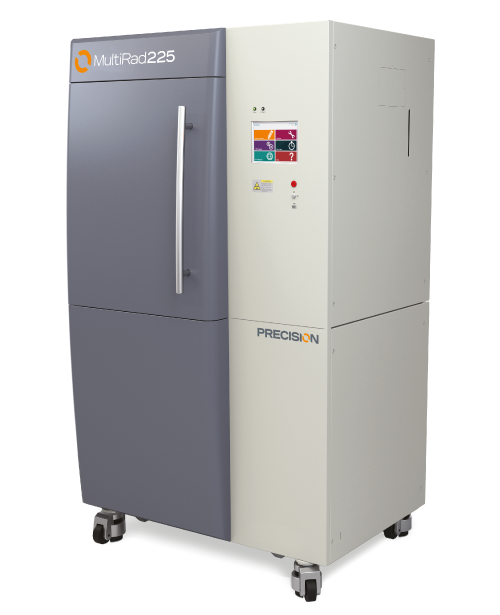BioCentriq added feeder cell irradiation capabilities to its impressive list of service offerings. In this article, we explain why we thought it was important to add these unique capabilities to our portfolio.
An Overview of NK Cells: The Natural Killer
NK cells are granular lymphocytes of the innate immune system that contain enzymes able to kill both tumor cells and virally infected cells. Unlike cytotoxic T cells, which require activation through priming, NK cells can lyse tumor cells without priming and activation, hence the meaning behind its name natural killer.
These highly specialized cells constantly monitor surrounding tissues and can modulate the immune response by secreting cytokines such as TNFα and INFγ that promote the activation of macrophages, dendritic cells, and neutrophils to provide a complete immune response. NK cell therapy is an exciting approach that aims to mimic the immune system’s natural abilities and enhance its action against a multitude of malignancies and viral infections.
Beyond these innate attributes, NK cell therapies are envisioned, with some proof now in clinic, to have significant advantages over its antigen-specific counterpart, T-cell therapies, in a treatment setting. Table 1 illustrates:
Table 1: Head-to-head comparison of T-cell therapy & NK cell therapy
| Attribute | T-Cell and CAR-T | NK-Cell |
| Starting Material | Patient starting material that can be inherently unpredictable and challenging to handle | Banked donor cells – typically immortalized cell lines such as NK-92, or iPSC’s, cord blood, peripheral blood |
| Manufacturability | Autologous, long vein-to-vein times | Allogeneic, turn-around-time is typically 24 hours |
| Safety | Possibility of CRS (autologous) and GvHD (allogeneic) | HLA-unrestricted, GvHD not observed in allogeneic setting |
| Targeting | Antigen specific | Non-specific but activated via MHC-1 pathway. Antigen-direction can be achieved using CAR, TCR and bi/tri-specific engagers |
| Longevity | Long-lasting especially in the CAR-T form differentiating into memory effector cells | Exhausted quickly but may have memory-like function |
Several decades of investigations into NK cell-based immunotherapies have demonstrated a remarkable safety profile and promising efficacy. Early successes of adoptive NK cell transfer in treating hematological cancers have motivated the use of this strategy in other clinical efforts, specifically in those treating solid tumors. At BioCentriq, we think NK cells are ready for prime time.
Key Challenges in NK Cell Therapy
As further efforts are launched to develop “off-the-shelf” NK cell-based cancer immunotherapy, we are faced with some key challenges that we’ll need to overcome in order to elevate NK cells to a second- or even first-line treatment, especially in the case of solid tumors. Key challenges include:
- Limitation in solid tumor tissue access and infiltration
- Hostile tumor environments that secrete suppressive cells through the presentation of inhibitory ligands, cytokines, and metabolites
- Short-term cell survival and cell exhaustion during circulation
- Difficulty in achieving clinical-grade ex-vivo cell counts
iPSC-derived NK cells (iNK) together with gene modification strategies have emerged as promising technologies that look to address some of these challenges. iNK cells offer an NK cell population that is homogeneously differentiated with the possibility of expansion to clinical scale as an “off-the-shelf” immunotherapy.
Perhaps the greatest challenge we face, however, is expansion of NK cells with preserved cytotoxic activity. As of now, commonly used allogeneic NK cell sources include peripheral blood-NK cells, cord blood-NK cells, immortalized NK-92 cells, and iPSC-NK cells. In many cases, NK cells are found to be less than 15% in the starting material, resulting in the need to perform multiple passaging cycles. Significant post-engineering expansion of NK populations are required to reach therapeutics doses that can potentially have meaningful impact in the clinic. Current NK expansion and activation strategies include the addition of complementary cytokines, use of feeder cells like K562, co-culturing feeder and activating antibodies, and other strategies such as transformed feeder cells, engineered feeders, and feeder particles. Using feeder cells is now a proven strategy that can promote the growth kinetics of NK cells. However, this strategy will require special handling of the feeder cells with the need for X-ray or gamma irradiation at the development and manufacturing site. BioCentriq is now geared to support these special handling needs.

BioCentriq is proud to offer development, manufacturing, and feeder cell irradiation capabilities to those looking to enter clinic with their NK pipeline. BioCentriq has recently added feeder cell culture and irradiation to its GMP capabilities with the acquisition of the MultiRad225 cell irradiation device from Precision X-Ray, Inc., located in Madison, Connecticut. With a fully integrated system with closed-loop cooling, an integrated dosimeter with advanced Automatic Dose Control (ADC) for exact dose setting, and more specialized features, the MultiRad225 is a high-powered irradiation platform ideal for feeder cell culture focused on NK cell therapy.
BioCentriq Can Be Your Partner for End-to-End Cell Therapy Development and Manufacturing
BioCentriq has a robust offering in cell therapy, serving as the perfect opportunity for your NK cell therapy program to advance into clinic. Discover our offerings and capabilities below.
- Phase I-III GMP clinical manufacturing of cell and gene therapies
- Process development geared towards improving yields, cell culture conditions, viral titers, and other important process parameters
- Subject matter expertise in NK, T-Cell, MSC, iPSC and DC
- Multiple state-of-the-art technology platforms, including the Terumo Quantum, Cytiva Flex Factory, Miltenyi CliniMACS Prodigy, and GRex
- Feeder cell irradiation capabilities
- Custom viral vector manufacturing in AAV and Lentiviral vectors
Contact Us to Get Started
Do you have a need for feeder cell expansion or NK cell manufacturing? BioCentriq is ready to support your NK cell therapy program and help you advance into the clinic. Click here to contact us today, and we’ll schedule a meeting to identify how BioCentriq can address your manufacturing needs.
Sources